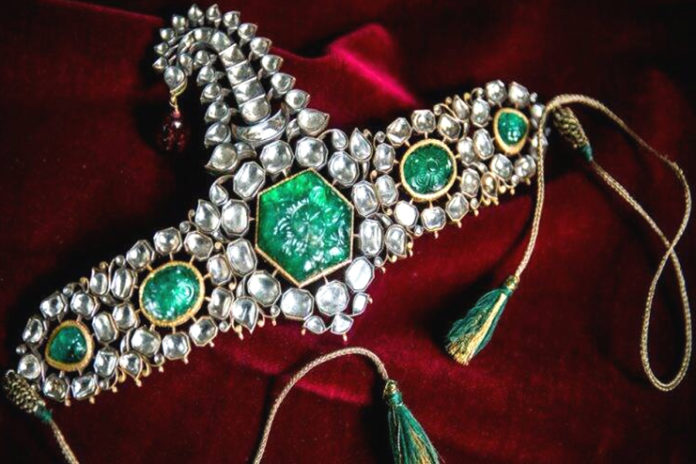Sikh Khalsa commander Hari Singh Nalwa’s 19th-century gem-set turban was among the key highlights of an auction held by Sotheby’s auction house in London.
The enameled turban ornament at the Arts of the Islamic World auction fetched 350,000 pounds, nearly double of up to 180,000 pounds on Wednesday.
The sale by Sotheby’s also included two 17th century Mughal miniature paintings from India – ‘A Drawing of Frederick the Wise’, which fetched 102,500 pounds, and Sur Das’s ‘A Battle Outside a Walled Fortress’, which fetched 143,750 pounds.
The sale at the auction house in London formed part of the Middle Eastern and Orientalist Art Week, which attracted total sales of 18.7 million pounds.
“There has been a real buzz in our exhibitions over the past week, and this sense of excitement carried through into the saleroom – with enthusiastic bidding from private collectors and institutions alike,” said Edward Gibbs, Sotheby’s Middle East and India Chairman.
“There was a real breadth to the array of artworks on offer, reflected both in the strength of bidding and the participation of a wide spectrum of collectors from over 50 countries. Twelve new auction records were set for artists from across the region, amongst them established, indeed treasured, modern masters as well as lesser-known names that we were introducing to our collectors for the first time,” he said.
The auction week witnessed an “epic auction duel” with bidders battling it out for the Venetian portrait of fabled Ottoman Sultan Suleyman the Magnificent, an artwork that encapsulates “rarity, beauty, and provenance as well as embodying the cross-cultural dialogue that enriches this varied collecting category”.
The portrait fetched 5,323,500 pounds, much above its estimate of 350,000 pounds.
“It is wonderful to witness art and artists from the Middle East gaining ever wider recognition, reflecting the truly global appeal of this rewarding area of the market,” Gibbs added.
A further highlight of the auction was 16th century’s a rare intact Iznik ‘Golden Horn’ pottery dish, which sold for 531,000 pounds. It was one of the last remaining examples of the unusual style.
Besides, the auction also featured fine carpets and rugs, led by an inscribed and dated intensely golden Persian silk rug – made for the second Qajar emperor of Iran Fath-Ali Shah, which doubled its estimate to make 150,000 pounds.













































